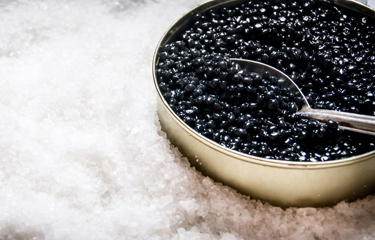Russia adds more seafood products to import bans from “unfriendly countries”

Russia has added more seafood products to the list of items the government has banned from “unfriendly countries.”
Russia has already had a standing import ban on seafood from Western countries for nearly a decade. In 2014, Russian President Vladimir Putin retaliated against economic sanctions from the U.S. and E.U. for its invasion of the Crimean Peninsula in Ukraine with trade bans of its own – banning the import of “agricultural products, raw materials, and foodstuffs originating in countries that have decided to impose economic sanctions on Russian legal entities and/or physical individuals, or have joined such decisions.”
The bans, which have been in place for nearly a decade, effectively halted all shipments of seafood to Russia from Europe, North America, and Australia.
Now, Russia is banning additional seafood products – specifically “ready or canned fish, sturgeon caviar, and its substitutes made from fish eggs” and “prepared or preserved crustaceans, mollusks, and other aquatic invertebrates,” in a move Russia's Federal Agency for Fisheries said will free upmarket niches for domestic manufacturers, Fishnews reported.
The bans are in part retaliation against “unfriendly countries” – the U.S., E.U., Canada, Australia, Norway, Ukraine, Albania, Montenegro, Iceland, Lichtenstein, and the United Kingdom – who have sanctioned Russia for its latest invasion of Ukraine. Deliveries from other foreign countries like China will still be allowed.
Reuters reported that despite many Western countries stopping all sales to Russia, a grey market imports scheme was keeping foreign goods on shelves. Now those goods will be banned domestically and fall under a wider food embargo enacted by Russia to favor domestic producers.
The bans on Russia’s part come as the U.S. continues to float an expanded ban on Russian seafood imports. Another bill sponsored by U.S. Senator Lisa Murkowski (R-Alaska) would add “cooked crab” to the Country-of-Origin Labeling Program, and Fishnews cited the new bill as a “new barrier to foreign crab.”
Photo courtesy of ArtemSh/Shutterstock






Share